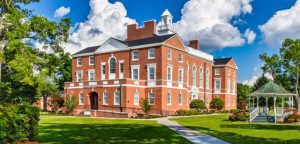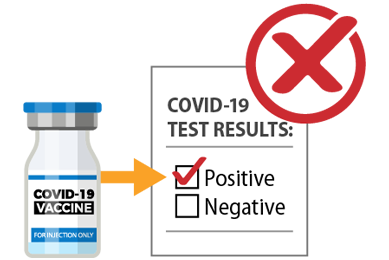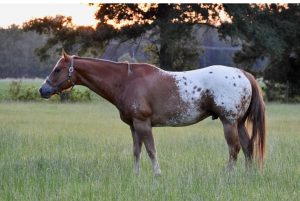
Following the Aug. 6, 2021 dedication of the Pender County Courthouse, several residents asked us to share the history written by Gary Trawick.
By Gary E. Trawick
Prepared for the re-dedication of the courthouse on Aug. 26, 2021
Courts are an essential function of government. There can be no orderly society without courts. You cannot have courts without courthouses or some building in which the court can function. You are here today to re-dedicate this building after extensive renovations.
Before I tell you something about this building, let me tell you a little about other locations in Pender County where the functions of the court have been carried out. Pender County came into existence by an act of the Legislature passed on February 16, 1875. Two prior efforts to create a county comprising the northern two-thirds of New Hanover County had failed passage. The bill creating the county, as the two previous bills, was for a county to be named Lillington. An amendment offered during the debate changed the name of the proposed county from Lillington to Pender.
After the passage of the bill creating the county, supplemental bills were passed in March and April directing how the county government was to be established. One of those provisions directed that a Superior Court be held on the second Monday of July and the third Monday of December each year. A rather interesting provision of the supplemental legislation was that after a site was procured for a courthouse; … ”it shall be unlawful for any person to sell any spirituous liquors with three miles of said location…” I do not know whether that provision has ever been changed, but I do know a lot of spirituous liquors have been sold within three miles of the courthouse.
A special election was held for the location of the county seat and the Town of South Washington, which we know today as Watha, was chosen. It was there the first court of the new county was held on the second Monday of July 1875 in a building owned by a Mr. Rivenbark. The building was demolished a few years ago.
Watha would be the county seat of the new county for only just more than two years. The legislature of 1877 provided for a new election for the county seat to be held on the first Thursday of August of that year. The result of this election was that Burgaw would be the seat of the county.
Officials with the Wilmington-Weldon Railroad had lobbied for Burgaw as the county seat. Much of the land at the Burgaw site was owned by the Railroad. By deed dated February 6, 1878, the Railroad conveyed 70 acres to Robert M. Croom, Daniel Shaw, Elijah Tate, C.N.D. Humphrey, and Miles Armstrong in their capacity as commissioners for the County of Pender.
Deducted from the conveyance were several lots that the Railroad had conveyed to individuals. Also, included in the deed was a provision that a rectangle parcel running 600-feet long and 378-feet wide was to be used as the site for a courthouse. It is on this site the present courthouse sits.
Also included in the deed was a provision the county was to offer the other land or lots, conveyed to the public and the proceeds from the sale of these lots were to be used to build the courthouse.
The deed further provided that if the sale of the lots exceeded the cost of the courthouse, the excess was to be used to beautify the grounds of the courthouse.
Of course, the county could not wait for a new courthouse to be built before having sessions of court. A house was moved to the southeast corner of Wright and Fremont streets, where First Citizens Bank later was located, to serve as a courthouse. The courtroom was upstairs, and the ground floor was used for offices.
In May of 1883 bids were let for a new brick courthouse to be erected on the Square provided by the Wilmington Weldon Railroad. A Raleigh firm had been awarded the contract to build the new courthouse for $9,856. The county was obligated to provide the materials. The brick for the new edifice was manufactured on the square under the supervision of A. H. Paddison. The cornerstone was laid on July 4 of that year and the first court was held on December of the same year.
Daniel Shaw, one of the county’s first commissioners, wrote an entry in his diary in the early 1890s: “Planted oaks on the court square in Burgaw.” The type of oaks planted has an average life of just over 100 years. So, today we see those original oak trees becoming diseased and dying. Our present Board of Commissioners is to be commended for hiring tree experts to examine the trees and determine which need to be removed and the variety of trees to replace them.
Sometime in the early 1930s fire damaged the courthouse. The upstairs of what was later C. F. Davis Hardware (now China King restaurant) was converted into a temporary courtroom. It was here that a hearing was held before Superior Court Judge E.H. Crammer, as committing magistrate, seeking to find the identity of the murderers of Dock Rogers.
Rogers, a Black man, was accused of shooting, wounding but not killing, a white woman. Rogers sought to elude arrest, but was finally apprehended after being shot by law enforcement, but not killed. While being transported to Burgaw a white mob took him from law enforcement and killed him. At the hearing, 33 witnesses were called, but no one identified any person responsible for the killing. Alton Saunders testified he saw Roger’s body shortly after he was killed and his body: “Looked like it was shot all to pieces to me.” Governor J. C. B. Ehringhaus offered a reward for information leading to the arrest of those responsible. All major newspapers in the state printed articles about the killing. No one was ever charged with the murder of Rogers. I believe this to be the last lynching of a Black person by a white mob in North Carolina.
In 1934 the County Commissioners were faced with the need for a new courthouse. The Depression was in full force and citizens were having a hard time just meeting their basic needs. Help came from Washington. President Franklin Roosevelt and Congress were establishing programs to help citizens find jobs and stimulate the economy. The Public Works Administration on June 28, 1934, granted the county $75,000 for the construction of a new courthouse. The old courthouse was demolished the next spring with labor paid by the Federal Emergency Relief Administration. The next year the Works Progress Administration, another Roosevelt Depression recovery program, opened a reading room with two librarians in the building.
On November 7, 1937, the new courthouse was officially dedicated. It was a big celebration. The people were welcomed by Clifton L. Moore, Sr., the county attorney and later an Associate Justice on the State Supreme Court. Among those making short speeches were Congressman Graham Barden, the Speaker of the North Carolina House of Representatives R. G. Johnson, editor of The State (now Our State) Carl Goerch, and attorney R.K. Bryan gave a history of the county. The main address of the day was given by Governor J.C.B Ehringhaus; who was introduced by State Treasurer Charles M. Johnson. The program started at 9:30 a.m. and lasted most of the morning. Then after a recess with a basket lunch on the grounds, there was an afternoon program of entertainment by Home Demonstration Women and 4-H Clubs. It is that courthouse that is being re-dedicated today after two-and-half-year extensive renovation.
This is the first time the entire courthouse has had to be vacated for repairs but is not the first time the main courtroom has for a time not been able to be used. The most extensive of these times was a renovation from 1936 to 1988. While the courtroom was being renovated, a temporary courtroom was provided at Cripple Creek Corner, just across the street. Cripple Creek Corner was the former Holland Chevrolet building. Nancy and Buck Aycock had converted the building into, not only their home but also a dance studio. The main studio portion became a courtroom with a judge’s bench constructed at one end. Buck Aycock, in addition to his other occupations, was a taxidermist. His taxidermist shop became the lawyers’ lounge, the judges’ chamber, and when having jury trials, the jury deliberation room. Around the walls were mounted deer heads, mounted bass, and mounts of many other animals. Since I have held court in all of North Carolina’s 100 counties, I can testify it was the most unusual courtroom and jury room in North Carolina.
This courthouse also serves as an example of the growth of government over the last half-century. Just think, in 1960, this building housed not only the courtroom, but all of the following offices: Clerk of Court, Register of Deeds, Pender County Tax Office, Pender County Social Services, Farmers’ Home Administration, Pender County Board of Education office, a Veteran Services offices, and until just a few years prior the white public library.
Today, despite all offices other than court-related offices having been moved to other locations, this building is not sufficient to meet the needs of the Pender County court system. To meet this expanded need the county in 1998 purchased the building at the corner of Wilmington and Dickerson streets (formerly Wilson’s Grocery) to serve as a courthouse annex. In 2001 it was named for Clerk of Superior Court Francis Dawson Basden.
This courthouse also illustrates racial progress made since it was first dedicated. In the sixties the water cooler and restrooms at the south end were marked “colored only” and the ones at the north end were marked “white only.” Black citizens were required to sit in the balcony until called for involvement in a trial. In 1965 Superior Court Judge Rudoff Mintz directed all Black citizens in the balcony to come and sit in the seats in the main area and ordered the sheriff to lock the balcony.
The most famous trial held in this courthouse was the trial of the Wilmington Ten. It was the trial of nine Black and one white woman accused of various crimes connected to racial unrest in Wilmington in February 1971. The trial was moved from New Hanover County to Pender County, as the defense did not think they could get a fair trial in Wilmington. The trial was covered not by local media, but also by state, national and international media. The CBS television program Sixty Minutes did a special on the trial. Time, Newsweek, and the New York Times ran articles about the trial. When President Jimmy Carter accused the Soviet Union of human rights violations, they responded that the United States was guilty of the same citing the Wilmington Ten as an example. I would urge our county commissioners to erect a historical type of marker on the square so future generations will know and remember this trial took place here.
This is a big day. Our county leaders are causing this building to be re-dedicated. Dedicated as a building where our citizens can come to seek justice. Dedicated as a building where they can come to have their wills probated and estates administered. Dedicated as a building to which they can come and have their civil disputes settled. Dedicated as a building where our Black citizens can come and expect to be treated as equals and not as second-class citizens. I cannot be with you today, but I want to thank all the county commissioners who have taken the necessary steps to preserve this Hall of Justice. All of Pender County should applaud you.







